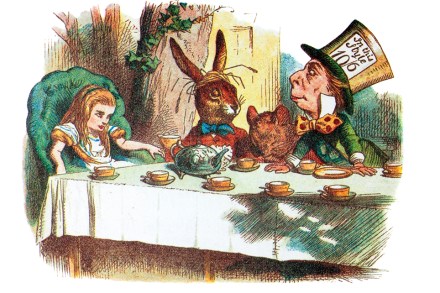Amol Rajan is right to change his ways on ‘aitch’
My husband thought it brave and manly of the BBC’s Amol Rajan to resolve publicly to change his pronunciation of the letter-name aitch. He’d said haitch all his life, but declared in a blog: ‘Dear reader, I’m here to tell you: it’s aitch.’ This attracted wide attention. He also announced that biopic is pronounced bio-pic, not bi-opic. That is true too, but attracted little attention. Amol Rajan is 40 and took an English degree at Cambridge, but has only just caught up with the eighth letter in the alphabet. Still, we all have blind spots. The key to the mispronunciation haitch is hypercorrection. Children were so often told to pronounce




















